The AWMJC (All Wales Midwives Journal Club) is an opportunity for Midwives across Wales to come together to discuss all subjects linking to midwifery and maternity care.
The club is free to registered midwives and student midwives and aims to support the ongoing collaborative learning and professional development of midwives across the country
Our Mission is to bring together midwives from across the country to promote and encourage professional development and raise the profile of midwifery and enhance the conversations and development of evidence based resources that support care.
By Midwives, for Midwives.
Our next LIVE is taking place on 19 February 2024.
Click here to access your resources and secure your placePrevious AWMJC Lives
Click below to access the recordings of previous meetings, links to articles explored as well as the resources offered to attendees.
For the third Live in this series, we were joined by Lisa George, Kristy Hutch and Faith Worrall from Hywel Dda University Health Board who shared information on the article Recognizing and Avoiding Significant Maternal Hyponatremia, written by Shilpa Thaker and published in the Journal of South Asian Federation of Obstetrics and Gynaecology.
Lisa George, Kristy Hutch and Faith Worrall are the Clinical Supervisor for Midwives team in Hywel Dda Health Board. They are passionate about Quality Improvement, specifically, improving clinical tools and documentation for clinical staff. Lisa, Kristy and Faith identified that Fluid Balance compliance was low in Hywel Dda Health Board and investigated why. They soon discovered the evidence around hyponatraemia, and the possible complications of the condition. Their investigations led them to identify a lack of knowledge within the workforce around the causes, and impact, of hyponatraemia in the peripartum period and set to fix this problem by developing a Maternity Specific Fluid Balance Chart and Hyponatraemia guidance.
The recording of this session can be viewed below:
MIDIRS Literature searches
As part of this Live, we offered our brand new literature search pack P204 for free. Click here to download it.
The literature search pack P204 includes articles on Hyponatraemia (low blood sodium levels) in pregnancy, labour and the postnatal period. Includes hyponatraemia in infants.
All literature search packs are free for members to download from our Maternity and Infant Care database. Click here to look through all of the topics we offer and subscribe here!
RCM i-learn
Nausea and vomiting in pregnancy - Nausea and vomiting in pregnancy (NVP) is very common, occurring in up to 80% of pregnancies. Caring for women with the condition requires a multidisciplinary approach.
This i-learn module is aimed at midwives, students midwives and maternity support workers who care for women experiencing NVP.
For most pregnant women, mild or moderate NVP impact on everyday functions in life such as the daily commute to work or the ability to care for their family. In rare cases it can be life threatening to both the fetus and the woman.
Nausea and vomiting in pregnancy (NVP) are very common, occurring in up to 80% of pregnancies. Caring for women with the condition requires a multidisciplinary approach. NVP is often described as a 'minor' disorder but it is uncomfortable for women and in some cases can negatively impact on the woman’s experience of what would otherwise be a normal pregnancy. With a good understanding of why it occurs and how women are affected physically and emotionally, caregivers can show more compassion while providing evidence based care.
After completing this module you will be able to:
- define nausea and vomiting in pregnancy and outline the possible causes
- differentiate between mild, moderate and severe nausea and vomiting in pregnancy
- discuss the psychological impact of nausea and vomiting in pregnancy
- discuss the assessment for and recognition of mild, moderate and severe nausea and vomiting in pregnancy
- outline the possible consequences of nausea and vomiting in pregnancy to the mother and fetus
- give advice on self-help strategies for mild to moderate nausea and vomiting in pregnancy
- discuss the management and possible treatments for nausea and vomiting in pregnancy
Study time: 30 minutes
For our second Live, We were joined by guest speaker Emilie Edwards who discussed her articles 'Supporting autistic midwifery students: fostering inclusion and empowerment' and 'How Can Midwives and Educators Better Understand, Teach and Support Neurodivergent Students?'
Emilie Edwards is an autistic Senior Lecturer in Midwifery at Middlesex University and neurodiversity advocate. She believes that listening to the lived experiences of neurodivergent and disabled people is essential to drive coherent, consistent, and concrete changes within institutions, which is essential in eliminating discrimination. She focuses on developing innovative, inclusive, and accessible teaching and learning resources that have been implemented throughout the midwifery programme and have inspired change in teaching and learning processes across the university. Her work at Middlesex led to the review of internal policies including recruitment and onboarding processes and she co-led the first Middlesex Neurodiversity Celebration Festival. Emilie has also worked with accessibility and neurodiversity networks in Higher Education Institutions, the Royal College of Midwives, and the NHS to improve support for neurodivergent colleagues, students, and service users. Her tireless dedication to improving accessibility and neurodivergence acceptance have led to a profile in teaching and learning, that has seen her recognised in achieving institutional and national awards for neurodiversity advocacy.
The full recording can be viewed below:
Articles previously published in the MIDIRS Midwifery Digest
For further reading on the topic of Resilience, we searched through our MIDIRS Midwifery Digest archive and found the following articles. For a taste of what we publish, please click here to download Kayleigh Darling's Hot Topic for free.
MIDIRS Literature searches
All our articles are sorted by our librarians together into groups – giving you quick and easy access to everything we have on a certain topic. Each Search Pack provides you with a list of bibliographic references and article abstracts that help you decide if an article fits your needs. You can then use this list of references to source full texts from your university or workplace library.
For members of the journal club, we are offering you our brand new literature search pack M101 for free. Click here to download it.
The literature search pack M101 includes articles on autism, dyslexia, attention deficit hyperactivity disorder (ADHD) and other neurological conditions in midwives and student midwives.
Our Librarians have also identified PN156 as a search pack of relevance to this month's topic. All literature search packs are free for members to download from our Maternity and Infant Care database. Click here to look through all of the topics we offer and subscribe here!
RCM i-learn
Neurodiversity in the workplace (Study time: 40 minutes)
Quotes from learners:
“Excellent resource with really helpful insight to the lives of neurodivergent midwives and their experiences”
“A really informative, interesting and vital learning package.”
“This was a lovely piece of work. As someone who has had difficulty disclosing, due to my own fears, this gives me a little more hope that I will someday. Thank you”
Promoting compassionate & supportive workplaces (Study time: 30 minutes)
Quotes from learners:
“The module really made me think about my own behaviours and reflect on my place in team working. It also gave insight into how to address difficult behaviour”
“Very good module, thought provoking”
“Very useful in reaffirming current beliefs and in giving me the confidence to speak up and act in a more compassionate way myself”
Appreciating dyslexia (Study time: 20 minutes)
Quotes from learners:
“An excellent module which provided a fantastic insight into understanding dyslexia and how to help people”
“being diagnosed with dyslexia very late in life this module and Kara's video has really helped me understand myself in a greater depth“
“I thoroughly enjoyed this module and have learnt some interesting facts about Midwives and Support workers who work with Dyslexia.
I will be able to use this knowledge when representing members in my RCM role.”
For our very first Live, We were joined by guest speaker Dr Lucie Warren, who discussed her article, Revisiting Resilience.
Dr. Lucie Warren qualified and registered as a midwife in September 2006 and was employed at Abertawe Bro Morgannwg LHB as a core rotational midwife in a busy obstetric led unit for 7 years. In April 2009, she was fortunate to secure funding from Research Capacity Building Collaboration (RCBC), Wales to undertake a PhD. During her doctoral studies, Lucie continued to work part-time as a midwife. Her PhD was concerned with maternal dietary behaviours and activity during pregnancy and was completed in October 2013. In January 2014, Lucie joined Cardiff University as a Midwifery lecturer. She worked alongside Professor Billie Hunter on the RCM funded research project exploring professional resilience in midwifery. This led to a number of publications and conference presentation and also sparked further research in this area, including professional resilience in midwives in Nigeria with Halima Musa Abdul. In 2020 she was seconded to work for HEIW as the Programme Manager for the Once for Wales Midwifery Practice Assessment Document (MPAD).
Lucie now works alongside a fantastic team of midwives in Cardiff University and is currently the Professional Head of Midwifery and Lead Midwife for Education there. Lucie is also a proud mother to two wonderful young men.
The full recording can be viewed below:
Articles previously published in the MIDIRS Midwifery Digest
For further reading on the topic of Resilience, we searched through our MIDIRS Midwifery Digest archive and found the following articles. For a taste of what we publish, please click here to download Kayleigh Darling's Hot Topic for free.
MIDIRS Literature searches
As part of the first club, we offered our literature search pack M91 for free. Click here to download it.
The literature search pack M91 covers resources and studies concerning the issue of coping and the concept of resilience in midwifery, including strategies such as mindfulness and meditation. Aimed at students and professionals, this search pack has a practical focus.
Our Librarians have also identified PN35 as a search pack that may be of use to members of this month's journal club. All literature search packs are free for members to download from our Maternity and Infant Care database. Click here to look through all of the topics we offer and subscribe here!
RCM i-learn
Building resilient practitioners - This quick taster course will introduce you to the concept of resilience, explain what is currently known about resilience in midwifery practice, and provide suggestions for developing personal resilience strategies. It includes a research-based Resilient Repertoire with linked reflective questions.
By the end of this module you will have:
- Gained a better understanding of resilience
- Explored what is currently known about resilience in midwifery practice
- Considered how your own personal resilient strategies could be developed
Study time: 20 minutes
Promoting compassionate and supportive workplaces - This i-learn module on Promoting Compassionate and Supportive workplaces supports the RCM Caring For You campaign in particular Charter Commitment 5 'nurture a compassionate and supportive workplace that cares for midwives and maternity support workers'. This includes empowering all staff to raise concerns if they see an unsafe practice.
The module is made up of a series of four videos showing different behaviours and how others see those behaviours.
Study time: 30 minutes
How does it work?
The AWMJC is coordinated by a team of Midwives across Wales who oversee the rotation of the AWMJC around Wales and work with local groups to host the AWMJC Live from your local Health Board once a year.
When it is the turn of your local health board to host the journal club your local coordination group will ask for suggestions for journal articles for discussion. If you would like to suggest an article you will be asked to provide a short explanation as to why you have chosen that article. Your coordination group will then come back to the AWMJC group with your suggestions so that we can seek the necessary permissions to use the articles.
Once an article has been selected the local coordination group will put together a presentation (in whatever style you like) which will lead the AWMJC Live through the topic and the learning points or interesting points for discussion that you have highlighted in the article.
Each Health Board will have someone available to them to help facilitate the session and the discussion.
The AWMJC Live will also be complimented by webinars, podcasts and other learning opportunities that will be made available via our AWMJC pages.
How did it start?
Midwives Journal Club started life as a local journal club in Cwm Taf Morgannwg UHB to encourage and support the engagement of Midwives (and the wider MDT) with journal articles and wider reading.
The aim was to promote professional discussion around a wide range of topics that would link to midwifery and maternity care.
The original journal club was based on the idea of a book club. Someone would choose a journal article that they found interesting and bring it to the journal club to discuss. Our first journal club was led by a guest speaker who skilfully led the group through the learning points and discussions around the selected topic.
As word got out about our Journal Club we started to receive interest from colleagues outside of our health board who wanted to join us. As the journal club was hosted online we were able to link in with other colleagues and invite them to our second meeting.
As with our first Journal Club, we had a guest speaker who led the discussions allowing the midwives to attend and join in without any pressure. Following this we received more interest from colleagues across Wales who were interested in replicating the journal club in their areas.
As the idea for the Journal club was to bring midwives together to engage with discussion and learning from each other it seemed like a missed opportunity for sharing and learning together if we had individual journal clubs………. And so the idea of the All Wales Midwives Journal Club was born.
Who is behind the AWMJC?
I trained as a midwife in University of Glamorgan (now University of South Wales), qualifying in 2009. My midwifery practice has been based mainly in acute obstetric units with Alongside Midwifery Units. This afforded me experience in caring for women and birthing people in a midwifery led setting as well as for those with complex care needs.
My passion has always been learning and development, whether that be my own, or supporting others. In 2016 I completed my PGCe and began my journey in midwifery education. I have worked as a Lecturer in Midwifery in Swansea University teaching and supporting students midwives, midwives and paramedics across all aspects of midwifery education and training. I have also undertaken the roll of Programme Manager for Wales for Health Education Improvement Wales, focusing on the Standards for Student Supervision and Assessment and creating the Practice Supervisor/Practice Assessor training for Wales. I am currently in my dream job as a Practice Development Midwife, supporting learning and development of midwives and doctors of the future as well as our multi-disciplinary teams.
My aim in creating the original journal club was to support clinical midwives to re-engage with the literature that drives practice and to reignite their passion for all things midwifery. Once I could see the conversation and debates it sparked in my colleagues, I knew that we couldn’t keep this to ourselves, and so the All Wales Journal Midwives Journal Club was born.
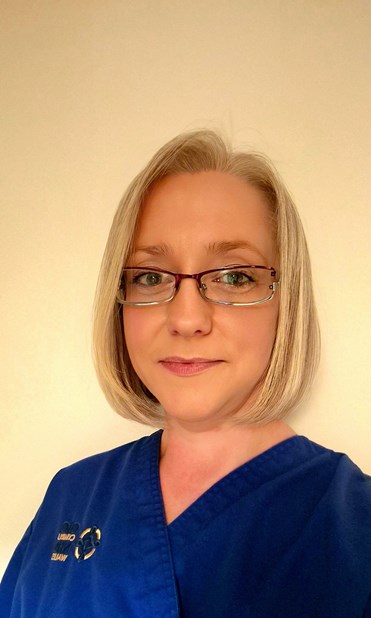
I trained as a midwife in Cardiff University, qualifying in 2008. I have worked in a number of different areas within a hospital setting, providing both midwifery-led and complex care. I moved into the education sector in 2016, taking on the seconded roles of Education Liaison Midwife in Hywel Dda University Health Board and lecturer at Swansea University. I am now a full-time senior lecturer within the School of Health and Social Care at Swansea. I have a special interest in research and lead a module that prepares student midwives to become confident in critically analysing evidence and data in order to inform their practice. My aim is to engage and stimulate students by giving them the skills that takes the apprehension out of even the most challenging literature and makes it accessible to all. Further to this, I am also undertaking my own research into human rights in childbirth as a part-time postgraduate student.

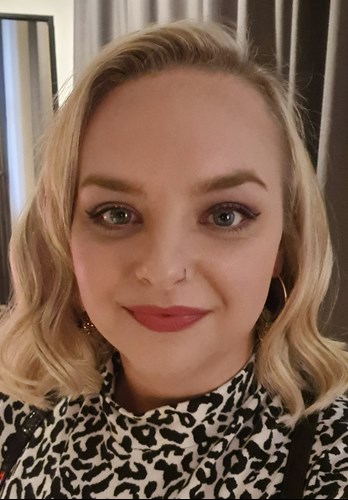
My name is Laura Clarke. I trained in the University of Glamorgan and I have worked in CTMUHB for the last eight years. During my career, I have worked in various roles, both in the hospital and community settings, at the Royal Glamorgan, Prince Charles and Princess of Wales Hospitals.
For the last 5 years I have been part of the CTMUHB PROMPT Faculty, during this time I have supported the PROMPT Wales National Team, promoting evidence based practice in both the acute and community areas.
I am currently a Clinical Supervisor for Midwives in CTMUHB. This role aims to provide midwives with an opportunities to develop a commitment to learning, receive peer support whilst sharing experiences and challenge their own practice within a safe and confidential nurturing environment.
I am deeply passionate about quality, safety and service improvement within midwifery and strive to be an agent for change. I have recently taken on a role as PERIPrem Cymru National Lead Midwife within the Wales Maternity and Neonatal Network. Launched across the West of England and South West AHSN regions in April 2020, the PERIPrem bundle (Perinatal Excellence to Reduce Injury in Premature Birth) is a unique perinatal care bundle of eleven interventions that demonstrate a significant impact on brain injury and mortality rates amongst babies born prematurely. The aim of this project is to ensure successful delivery of the PERIPrem Cymru national launch phase.
As part of the All Wales Journal Club Steering Group my aim is to engage midwives, and students alike, to continue their professional development through access to literature. Bringing midwives and students together to discuss evidence based practice to motivate and support midwives to embrace the quality and safety culture that improves outcomes for women and their families.
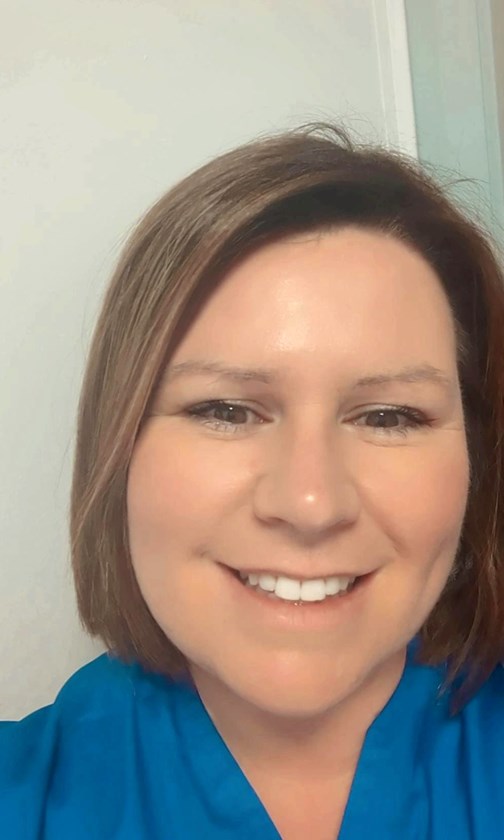
I have been a registered midwife for over twenty years, specialising in Childbirth Related Perineal Trauma. I have a passion for midwifery led research to improve and evolve care and our profession. I want to support everyone in becoming involved in research and remembering it is a vital component of our role. I am also dedicated to getting our midwifery knowledge published and shared.
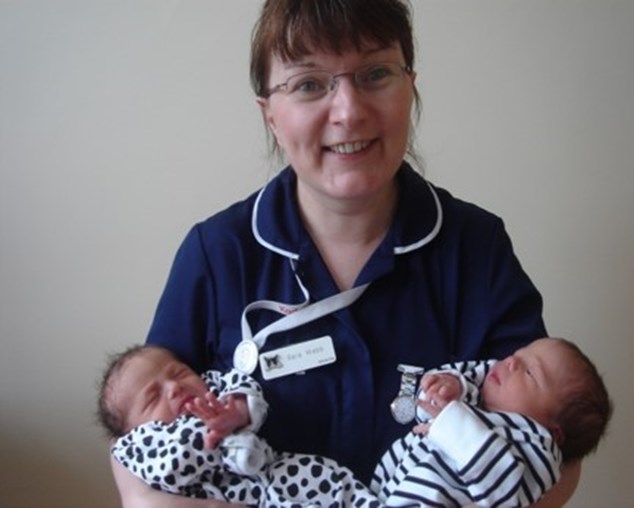
I am the Editor of The Practising Midwife Journal, and Assistant Professor Midwifery at Northumbria University. I have a passion for teaching midwifery and supporting midwifery scholarship. I am a prolific writer on a range of topics related to midwifery, women's reproductive rights and humanised care, inclusive midwifery and, LGBT+ issues and gender equality. My edited collection Bearing the Weight of the World, Exploring Maternal Embodiment is published by Demeter Press. I am also a novelist, published by Honno Press.
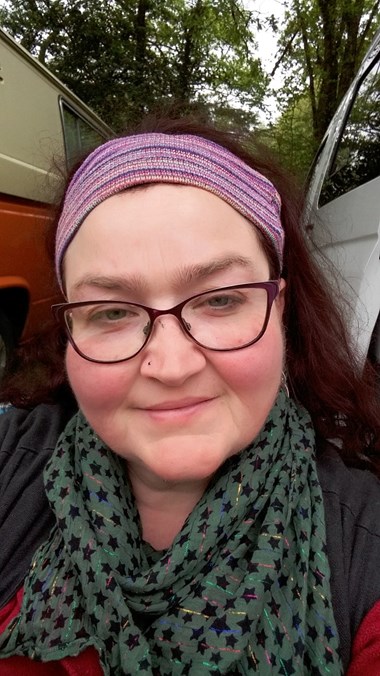
I trained as a Midwife back in 2004 in Anglia Polytechnic University. Despite my training in Essex, I am a Welsh girl through and through. Since qualifying I worked in Southend Hospital, University Hospital of Wales in Cardiff and now a proud member of Cwm Taf Morgannwg UHB Maternity Team. I am a band 6 midwife working predominately on labour ward and a Royal College of Midwives Workplace Rep.
A self-proclaimed inquisitive Dory, I have many interests. These include: a passion for improving the working environment for maternity staff which in turn will improve the care to women, birthing people and families. A keen interest in helping colleagues to develop and reach their potential and a currently improving my knowledge on how quality improvement fits into Midwifery and how digital knowledge can drive changes in the NHS.
As part of the All-Wales Journal Club Steering Group my role will be to network and engage midwives from all the health boards in Wales to get involved. To promote involvement by explaining how maternity staff can utilise these sessions to continue their development and critical thinking. To encourage others (myself included) to not be afraid of reading and analysing literature, having professional discussions with colleagues and to start on that path towards possibly publishing themselves.
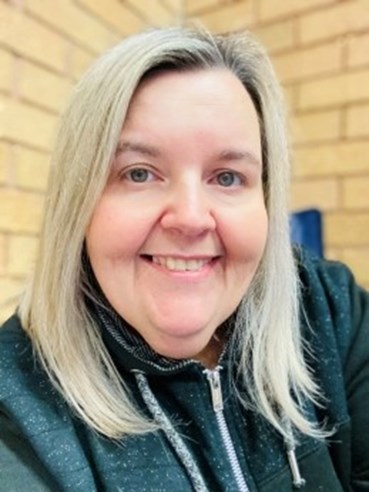
AWMJC Testimonials
“I had the pleasure of attending the Cwm Taf Journal Club last year and was so excited by the dynamic and interactive session. It was so refreshing to see midwives have the opportunity to share evidence, knowledge and a culture of learning and trust. I love nothing more than learning and seeing information from others perspectives and this journal club did just that! The club being launched at an All Wales level is going to be transformative. I cannot wait to watch midwives from across Wales come together and discuss our practice and learn from each other!” Faith Worrall, Community Midwife – Three Counties Team.
“It was really lovely to be part of the Midwifery Journal Club and have the opportunity to share and discuss research with midwives across Wales. The virtual environment is perfect for the journal club as it means interested midwives from any Health Board can join in the discussions with the authors and it creates an excellent forum for learning. It really helps to bridge the gap between theory and practice. Such a friendly welcoming group and great for revalidation too!” Lucie Warren, Senior Lecturer & Professional Head of Midwifery.
